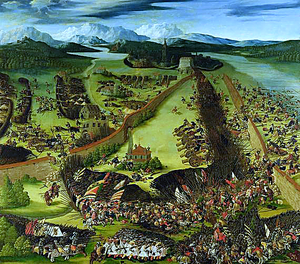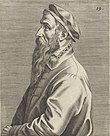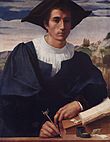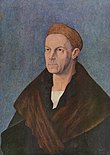1525
| Millennium: | 2nd millennium |
|---|---|
| Centuries: | |
| Decades: | |
| Years: |

| 1525 by topic |
|---|
| Arts and science |
| Leaders |
| Birth and death categories |
| Births – Deaths |
| Establishments and disestablishments categories |
| Establishments – Disestablishments |
| Works category |
| Gregorian calendar | 1525 MDXXV |
| Ab urbe condita | 2278 |
| Armenian calendar | 974 ԹՎ ՋՀԴ |
| Assyrian calendar | 6275 |
| Balinese saka calendar | 1446–1447 |
| Bengali calendar | 932 |
| Berber calendar | 2475 |
| English Regnal year | 16 Hen. 8 – 17 Hen. 8 |
| Buddhist calendar | 2069 |
| Burmese calendar | 887 |
| Byzantine calendar | 7033–7034 |
| Chinese calendar | 甲申年 (Wood Monkey) 4222 or 4015 — to — 乙酉年 (Wood Rooster) 4223 or 4016 |
| Coptic calendar | 1241–1242 |
| Discordian calendar | 2691 |
| Ethiopian calendar | 1517–1518 |
| Hebrew calendar | 5285–5286 |
| Hindu calendars | |
| - Vikram Samvat | 1581–1582 |
| - Shaka Samvat | 1446–1447 |
| - Kali Yuga | 4625–4626 |
| Holocene calendar | 11525 |
| Igbo calendar | 525–526 |
| Iranian calendar | 903–904 |
| Islamic calendar | 931–932 |
| Japanese calendar | Daiei 5 (大永5年) |
| Javanese calendar | 1443–1444 |
| Julian calendar | 1525 MDXXV |
| Korean calendar | 3858 |
| Minguo calendar | 387 before ROC 民前387年 |
| Nanakshahi calendar | 57 |
| Thai solar calendar | 2067–2068 |
| Tibetan calendar | 阳木猴年 (male Wood-Monkey) 1651 or 1270 or 498 — to — 阴木鸡年 (female Wood-Rooster) 1652 or 1271 or 499 |
Year 1525 (MDXXV) was a common year starting on Sunday (link will display the full calendar) of the Julian calendar.
Events
January–March
- January 21 – The Anabaptist Movement is born[1] when Conrad Grebel, Felix Manz, George Blaurock, and about a dozen others baptize each other in the home of Manz's mother on Neustadt-Gasse, Zürich,[2] breaking a thousand-year tradition of church-state union.
- February 24 – Battle of Pavia: German and Spanish forces under Charles de Lannoy and the Marquis of Pescara defeat the French army, and capture Francis I of France, after his horse is wounded by Cesare Hercolani. While Francis is imprisoned in Lombardy and then transferred to Madrid, the first attempts to form a Franco-Ottoman alliance with Suleiman the Magnificent against the Habsburg Empire are made.[3]
- February 28 – The last Aztec Emperor, Cuauhtémoc, is killed by Hernán Cortés.[4]
- March 20 – In the German town of Memmingen, the pamphlet The Twelve Articles: The Just and Fundamental Articles of All the Peasantry and Tenants of Spiritual and Temporal Powers by Whom They Think Themselves Oppressed is published,[5] the first human rights related document written in Europe.
April–June
- April 4 – German Peasants' War in the Holy Roman Empire: Battle of Leipheim – The peasants suffer great losses when they are attacked by Georg, Truchsess von Waldburg and the town of Leipheim is forced to surrender.[6] Four peasant leaders are beheaded, including Jakob Wehe and Ulrich Schoen.
- April 10 – Albert, Duke of Prussia commits Prussian Homage.
- May 14–15 – German Peasants' War: Battle of Frankenhausen – Insurgent peasants led by radical pastor Thomas Müntzer are defeated.[7] Following the defeat, Müntzer is executed in front of the gates of Mühlhausen.[8]
- June 13 – Martin Luther marries ex-nun Katharina von Bora.[9] The painter Lucas Cranach the Elder is one of the witnesses.[10]
- June 18 – Henry VIII of England appoints his six-year old illegitimate son Henry FitzRoy Duke of Richmond and Somerset.[11][12]
- June 23–24 – German Peasants' War: Battle of Pfeddersheim – Peasants are defeated in the last significant action of the war, in which over 75,000 peasants have been killed.
July–September
- July 29 – Santa Marta, the first city in Colombia, is founded by Spanish conquistador Rodrigo de Bastidas.[13]
- August 13 – The coronation of Sophie of Pomerania as Queen consort of Denmark takes place in Copenhagen, a little more than a year after her husband's coronation as King Frederick I. She is granted Lolland and Falster, the castles in Kiel and Plön, and several villages in Holstein for her income.[14]
- August 30 – The French ambassador to England and King Henry VIII sign the Treaty of the More at a castle, "The More", in Hertfordshire.[15]
- September 14 – In Switzerland, the burning of most of the book collection of the Stiftsbibliothek of the Grossmünster Abbey in Zurich begins, by order of Huldrych Zwingli, as part of the Swiss Reformation. After 20 days of destruction of a collection built since 1259 for over 250 years, only 470 volumes are left.[16]
- September 24 – Jeremias I is restored to the position of Ecumenical Patriarch of Constantinople, leader of the Eastern Orthodox Christian church, by order of the Ottoman Empire Sultan Suleiman the Magnificent.[17]
October–December
- October 10 – the Earl of Angus, Scotland's Lord Warden of the Marches in charge of border security on the boundary with England, is able to work out a three-year peace treaty with the Kingdom of England and signs the initial agreement at the English border town of Berwick-upon-Tweed.[18]
- November 25 – Charles V, Holy Roman Emperor acting in his capacity as the King of Spain, issues an edict ordering the expulsion or conversion of the remaining Muslims in the Crown of Aragon, similar to that issued for the Crown of Castile by Queen Isabella in 1502. The order applies to the Kingdom of Valencia and the Principality of Catalonia.[19]
- December 8 – A second edict is issued in Spain directing Spanish Muslims to show proof of baptism as Christians or to leave by the deadline of December 31 (for Valencia) or January 26 (for Aragon and Catalonia).[19]
- December 31 – The deadline for Spanish Muslims to convert to Christianity in the Valencia is reached, after which remaining Muslims, or those who harbor them as fugitives, becomes punishable by forced exile, imprisonment or death.[19]
- December – The first French ambassador to reach the Sublime Porte, Jean Frangipani, sets out for Constantinople.
Date unknown
- Mixco Viejo, capital of the Pocomans Maya State, falls to the Spanish conquistadores of Pedro de Alvarado (in modern-day Guatemala) after a three-month siege.[20]
- European-brought diseases sweep through the Andes, killing thousands, including the Inca.
- The Bubonic plague spreads in southern France.
- Printing of the first edition of William Tyndale's New Testament Bible translation into English in Cologne is interrupted by anti-Lutheran forces and Tyndale flees to Worms[21] (finished copies reach England in 1526).[22][23]
- Printing of Huldrych Zwingli's New Testament 'Zürich Bible' translation into German by Christoph Froschauer begins.
- The Navarre witch trials (1525-26) begins.[24]
- The Chinese Ministry of War under the Ming dynasty orders ships having more than one mast sailing along the southeast coast to be seized, investigated, and destroyed; this in an effort to curb piracy and limit private commercial trade abroad.
- Kasur established as a city by the Kheshgi tribe of Pashtuns from Kabul who migrate to the region in 1525 from Afghanistan.
- The Age of Samael ends, and the Age of Gabriel begins, according to Johannes Trithemius.[25]
Births

- January 29 – Lelio Sozzini, Italian Renaissance humanist and anti-Trinitarian reformer (d. 1562)
- February 5 – Juraj Drašković, Croatian Catholic cardinal (d. 1587)[26]
- March 19 – Caspar Cruciger the Younger, German theologian (d. 1597)[27]
- March 25 – Richard Edwardes, English choral musician, playwright and poet (d. 1566)
- March 26 – Katharina of Hanau, Countess of Wied, German noblewoman (d. 1581)
- June 1 – Caspar Peucer, German reformer (d. 1602)[28]
- June 29 – Peter Agricola, German Renaissance humanist, educator, classical scholar, theologian, diplomat and statesman (d. 1585)
- September 1 – Christoffer Valkendorff, Danish politician (d. 1601)[29]
- September 11 – John George, Elector of Brandenburg (d. 1598)[30][31]
- September 25 – Steven Borough, English explorer (d. 1584)[32]
- November 7 – Georg Cracow, German lawyer and politician (d. 1575)[33]
- December 1 – Tadeáš Hájek, Czech astronomer (d. 1600)
- December 23 – John Albert I, Duke of Mecklenburg (d. 1576)[34]
- date unknown – Maharal of Prague, Talmudic scholar, Jewish mystic and philosopher (d. 1609)[35]
- probable
- Pieter Bruegel the Elder, Flemish painter (d. 1569)[36]
- Baldassare Donato, Italian composer and singer (d. 1603)[37]
- Giovanni Pierluigi da Palestrina, Italian composer (d. 1594)[38]
- Hans Staden, German soldier and sailor (d. 1579)[39]
Deaths


- January 14 – Franciabigio, Florentine painter (b. 1482)[40]
- February 24 (in action at the Battle of Pavia)
- Guillaume Gouffier, seigneur de Bonnivet, French soldier (b. c. 1488)[41][42]
- Jacques de La Palice, French nobleman and military officer (b. 1470)[43]
- Richard de la Pole, last Yorkist claimant to the English throne (b. 1480)[44]
- Louis II de la Trémoille, French military leader (b. 1460)[45]
- Bartolomeo Fanfulla, Italian mercenary (b. 1477)
- René de Brosse, French noble[46]
- February 28 – Cuauhtémoc, last Tlatoani of the Aztec Empire (b. c. 1495)[47]
- April 2 or April 3 – Giovanni di Bernardo Rucellai, Italian Renaissance man of letters (b. 1475)[48]
- May 5 – Frederick III, Elector of Saxony (b. 1463)[49]
- May 12 – Anna of Mecklenburg-Schwerin, Mecklenburgian royal (b. 1485)[50]
- May 18 – Pietro Pomponazzi, Italian philosopher (b. 1462)[51]
- May 27 – Thomas Müntzer, German pastor and rebel leader (b. 1489) (executed)[52]
- July 5 – Johann of Brandenburg-Ansbach, Viceroy of Valencia, German noble (b. 1493)
- July 22 – Richard Wingfield, English diplomat (b. c. 1456)[53]
- August 4 – Andrea della Robbia, Italian artist (b. 1435)[54]
- October 24 – Thomas Dacre, 2nd Baron Dacre, Knight of Henry VIII of England (b. 1467)[55]
- November 17 – Eleanor of Viseu, queen of João II of Portugal (b. 1458)
- December 30 – Jakob Fugger, German banker (b. 1459)[56]
- probable
- Jean Lemaire de Belges, Walloon poet and historian (b. 1473)[57]
- Anna Bielke, Swedish noble and commander (b. 1490)[58]
References
- ^ Gordon, Bruce (2002). The Swiss Reformation. Manchester University Press. p. 196. ISBN 978-0-7190-5118-0. Retrieved July 30, 2023.
- ^ Hershberger, Guy Franklin (1963). Das Täufertum: Erbe und Verpflichtung (in German). Evangelisches Verlagswerk. p. 59. Retrieved July 30, 2023.
- ^ Jean Giono (1965). The Battle of Pavia, 24th February, 1525. P. Owen. p. 134.
- ^ Ludlow, Úrsula Camba; Rosas, Alejandro (October 21, 2018). Cara o cruz: Hernán Cortés (in Spanish). Penguin Random House Grupo Editorial México. ISBN 978-607-31-7361-2. Retrieved July 31, 2023.
Cortés again preferred to get up early, rather than being woken up early, and on February 28, 1525, he ordered Cuauhtémoc to be executed. Thus ended the story of the last emperor of the Aztecs.
- ^ Franz, Günther (December 1, 1939). "Die Entstehung der "Zwölf Artikel" der deutschen Bauernschaft". Archiv für Reformationsgeschichte - Archive for Reformation History (in German). 36 (jg): 193–213. doi:10.14315/arg-1939-jg14. ISSN 2198-0489. S2CID 163739674. Retrieved July 31, 2023.
- ^ Engels, Friedrich (1926). The Peasant War in Germany. International Publishers. p. 118. ISBN 978-91-40-09955-6. Retrieved July 31, 2023.
- ^ Wienecke-Janz, Detlef (2007). Die Chronik der Deutschen (in German). Wissenmedia Verlag. p. 136. ISBN 978-3-577-14374-5. Retrieved July 31, 2023.
- ^ Sternal, Bernd (July 31, 2014). Die Harz - Geschichte 4: Reformation, Bauernkrieg und Schmalkaldischer Krieg (in German). Books on Demand. p. 32. ISBN 978-3-7357-5965-8. Retrieved July 31, 2023.
- ^ Christopher Ocker (August 30, 2018). Luther, Conflict, and Christendom: Reformation Europe and Christianity in the West. Cambridge University Press. p. 437. ISBN 978-1-107-19768-8.
- ^ Bowers, Diane V. (March 2020). "To Spite the Devil: Martin Luther and Katharina von Bora's Wedding as Reform and Resistance". Religions. 11 (3): 116. doi:10.3390/rel11030116. ISSN 2077-1444.
- ^ Powell, Roger S.; Beauclerk-Dewar, Peter de Vere (2008). Royal bastards : illegitimate children of the British Royal family. Stroud: Tempus. p. 191. ISBN 978-0-7524-4668-4. Retrieved July 31, 2023.
- ^ "Henry VIII: June 1525, 11-20". www.british-history.ac.uk. Retrieved July 31, 2023.
- ^ Castro, Ricardo (1912). Páginas históricas colombianas (in Spanish). Imprenta Editorial. p. 415. Retrieved July 31, 2023.
- ^ Laurs Laursen, "Sophie", Dansk Biografisk Lexikon (Danish Biographical Dictionary), 1st edition, Volume XVI, p.164
- ^ "The Treaty of the More". Henry VIII,the Reign.
- ^ Martin Germann, Die reformierte Stiftsbibliothek am Großmünster Zürich im 16. Jahrhundert und die Anfänge der neuzeitlichen Bibliographie ("The reformed collegiate library at the Grossmünster in Zurich in the 16th century and the beginnings of modern bibliography")(Harrassowitz, 1994)
- ^ Kiminas, Demetrius (2009). The Ecumenical Patriarchate. Wildside Press LLC. p. 38,46. ISBN 978-1-4344-5876-6.
- ^ George Ridpath; Philip Ridpath (1979). The border history of England and Scotland. Mercat Press. pp. 261–363. ISBN 978-0-901824-58-5.
- ^ a b c L. P. Harvey, Muslims in Spain, 1500 to 1614 (University of Chicago Press, 2005) p.93
- ^ Mahler, Richard (1999). Guatemala: Adventures in Nature. John Muir Publications. p. 113. ISBN 978-1-56261-430-0. Retrieved July 31, 2023.
- ^ "Tyndale's New Testament, 1525". www.bl.uk. Retrieved July 31, 2023.
- ^ Tenney, Merrill C. (August 10, 2010). The Zondervan Encyclopedia of the Bible, Volume 5: Revised Full-Color Edition. Zondervan Academic. ISBN 978-0-310-87700-4. Retrieved July 31, 2023.
In 1525 or 1526 copies of Tyndale's first English NT reached England.
- ^ Daniell, David (January 1, 2001). William Tyndale: A Biography. Yale University Press. p. 134. ISBN 978-0-300-06880-1. Retrieved July 31, 2023.
- ^ Clark, Stuart; Monter, William (January 1, 2002). Witchcraft and Magic in Europe, Volume 4: The Period of the Witch Trials. A&C Black. p. 45. ISBN 978-0-485-89004-4. Retrieved August 1, 2023.
- ^ Goodrick-Clarke, Nicholas (October 14, 2008). The Western Esoteric Traditions: A Historical Introduction. Oxford University Press. p. 52. ISBN 978-0-19-971756-9. Retrieved August 1, 2023.
- ^ Sakcinski, Ivan Kukuljević (1887). Poviest porodice Draškovića Trakošćanskih (in Croatian). Matice Hrvatske. p. 6. Retrieved August 1, 2023.
- ^ Kohnle, Armin; Dingel, Irene (April 1, 2021). Die Crucigers: Caspar der Ältere, Caspar der Jüngere und Elisabeth Cruciger in ihrer Bedeutung für die Wittenberger Reformation (in German). Evangelische Verlagsanstalt. p. 298. ISBN 978-3-374-06808-1. Retrieved August 1, 2023.
- ^ Harrisse, Henry (1872). A Description of Works Relating to America. p. 173.
- ^ Helms, H. Jørgen (1917). Valkendorfs kollegiums historie fra dets oprettelse 1588 og indtil 1865: med en kort oversigt over kollegiets historie fra 1865 til nutiden (in Danish). trykt hos Nielsen & Lydiche. p. 25. ISBN 978-87-11-64161-3. Retrieved August 1, 2023.
- ^ Grabner, C. (1904). Die Abstammung der Freien u. Edlen Herren v. Kotzau aus dem Hause Hohenzollern (in German). p. 3. Retrieved August 1, 2023.
- ^ Grossmann, Julius (1905). Genealogie des Gesamthauses Hohenzollern (in German). W. Moeser. p. 22. Retrieved August 1, 2023.
- ^ Mayers, Kit (2005). North-east passage to Muscovy : Stephen Borough and the first Tudor explorations. Stroud: Sutton. p. 5. ISBN 978-0-7509-4069-6. Retrieved August 1, 2023.
- ^ Schnabel-Schüle, Helga (September 13, 2017). Reformation: Historisch-kulturwissenschaftliches Handbuch (in German). Springer-Verlag. p. 87. ISBN 978-3-476-05411-1. Retrieved August 1, 2023.
- ^ Rudloff, A. (1898). Bilder aus der mecklenburgischen Geschichte (in German). Wilhelm Susserott. p. 71. Retrieved August 1, 2023.
- ^ Sládek, Pavel (2017). "Admiration and Fear: New Perspectives on the Personality of the Maharal". Judaica Bohemiae. LII (2): 5–31. ISSN 0022-5738. Retrieved August 1, 2023.
- ^ Gertraude Winkelmann-Rhein (1969). The Paintings and Drawings of Jan 'Flower' Bruegel. H. N. Abrams. p. 25.
- ^ "DONATO, Baldassare". www.treccani.it (in Italian). Retrieved August 1, 2023.
- ^ Marvin, Clara (October 15, 2013). Giovanni Pierluigi da Palestrina: A Research Guide. Routledge. p. 1. ISBN 978-1-135-61754-7. Retrieved August 1, 2023.
- ^ Ribas, Rosa (2005). Testimonios de la conciencia lingüistica en textos de viajeros alemanes a America en el siglo XVI (in Spanish). Edition Reichenberger. p. 32. ISBN 978-3-935004-80-0. Retrieved August 1, 2023.
- ^ McKillop, Susan Regan (January 1, 1974). Franciabigio. University of California Press. p. 252. ISBN 978-0-520-01688-0. Retrieved August 2, 2023.
- ^ Sulte, Benjamin (1919). Mélanges historiques: études éparses et inédites de Benjamin Sulte (in French). G. Ducharme. p. 32. Retrieved August 2, 2023.
- ^ Herbst, Wilhelm (1881). Encyklopädie der Neueren Geschichte: in Verbindung mit namhaften deutschen und außerdeutschen Historikern. Aachen-Duttlingen (in German). Gotha: Friedrich Andreas Perthes. p. 396. Retrieved August 2, 2023.
- ^ Bulletin de la Société d'émulation du Bourbonnais (in French). Moulins: Impr. É. Auclaire. 1919. p. 69. Retrieved August 2, 2023.
- ^ Grummitt, David (January 20, 2014). A Short History of the Wars of the Roses. Bloomsbury Publishing. p. 182. ISBN 978-0-85772-329-1. Retrieved August 2, 2023.
- ^ John Powell; Christina J. Moose; Rowena Wildin (2001). Magill's Guide to Military History: Jap-Pel. Salem Press. p. 873. ISBN 978-0-89356-017-1.
- ^ VAUGEOIS, J. F. Gabriel (1841). Histoire des antiquités de la ville de l'Aigle et de ses environse (in French). P.E. Bredif. p. 319. Retrieved August 2, 2023.
- ^ Morris Rosenblum (1969). Heroes of Mexico. Fleet Press Corporation. p. 41. ISBN 978-0-8303-0082-2.
- ^ Rucellai, Giovanni (1887). Le opere di Giovanni Rucellai (in Italian). N. Zanichelli. p. lx. Retrieved August 2, 2023.
- ^ The Encyclopaedia Britannica: A Dictionary of Arts, Sciences and General Literature. R. S. Peale & Company. 1890. p. 741.
- ^ Schilling, Johannes (1997). Klöster und Mönche in der hessischen Reformation (in German). Gütersloher Verlagshaus. p. 30. ISBN 978-3-579-01735-8. Retrieved August 2, 2023.
- ^ Garin, Eugenio (January 1, 2008). "ARISTOTELIANISM FROM POMPONAZZI TO CREMONINI". History of Italian Philosophy. Brill. p. 356. ISBN 978-94-012-0522-1. Retrieved August 2, 2023.
- ^ Roper, Lyndal (June 16, 2016). Martin Luther. Random House. p. 265. ISBN 978-1-4735-4524-3. Retrieved August 2, 2023.
- ^ Proceedings of the Cambridge Antiquarian Society. Vol. 1. Macmillan. 1859. p. 275. Retrieved August 2, 2023.
- ^ "Robbia, Andrea (di Marco) della". Grove Art Online. Retrieved August 2, 2023.
- ^ "Dacre, Thomas, second Baron Dacre of Gilsland". Oxford Dictionary of National Biography (online ed.). Oxford University Press. 2004. doi:10.1093/ref:odnb/50220. Retrieved July 29, 2023. (Subscription or UK public library membership required.)
- ^ Pölnitz, Götz von (1949). Jakob Fugger: Band 2: Quellen Und Erlauterungen (in German). Vol. 2. Mohr Siebeck. p. 592. ISBN 978-3-16-814572-1. Retrieved August 2, 2023.
- ^ Munn, Kathleen Miriam (1936). A Contribution to the Study Of Jean Lemaire De Belges. Slatkine. p. 84. Retrieved August 2, 2023.
- ^ "Anna Eriksdotter (Bielke)". skbl.se. Retrieved August 2, 2023.
